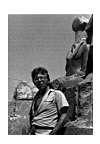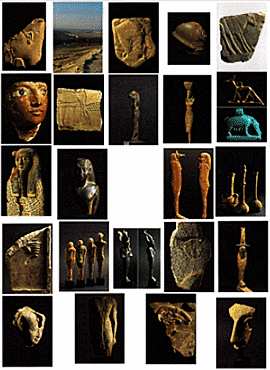 Jacques-Edouard Berger,
Jacques-Edouard Berger,
In Egypt, from Memphis to Aswan, from the Delta to the Cataracts, that which has the sky itself as a canopy and the horizon of the rising sun as a sanctuary is beautiful; that which exceeds the object's function to tend toward the cosmic and, through that, to the divine, is beautiful; and finally, this divine aspect which man can introduce into the material he is animating is also beautiful.
The architect who decides on a wall's upward slope, the sculptor who tames basalt, the painter who draws a profile, a flower or a bird, the artisan who pegs a footstool, the potter and even the quarrier all attempt to define not the form, but the idea which is its form, which gives it both meaning and existence. For to create is to give life; and to give life, one must know the secrets which govern the universe, the laws which ensure the harmony of the cosmos. The artist is thus a priest in that, like him, he knows how to hear "the true voices of the gods."
The form is Symbol, and the symbol is the Word. And, as the sage predicted, at the end of a long night, only the word remains: "A man has disappeared, his body is dust, his forefathers have returned to the earth; but the word returns him to life by the mouth of he who reads. The word is better than a house of stone, the doors of the Western abode; the word is stronger than a fortress, or an army ready for combat."
All those who have measured the strength of the word shall remain, beyond the stones, on humanity's lips because the word, the guarantor of existence, is, for them, more powerful than a pyramid.
